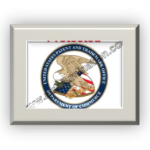A patent is a form of intellectual property. It consists of a set of exclusive rights granted by a sovereign state to an inventor or their assignee for a limited period of time in exchange for the public disclosure of an invention.
The procedure for granting patents, the requirements placed on the patentee, and the extent of the exclusive rights vary widely between countries according to national laws and international agreements. Typically, however, a patent application must include one or more claims defining the invention which must meet the relevant patent-ability requirements such as novelty and non-obviousness. The exclusive right granted to a patentee in most countries is the right to prevent others from making, using, selling, or distributing the patented invention without permission.
Under the World Trade Organization‘s (WTO) Agreement on Trade-Related Aspects of Intellectual Property Rights, patents should be available in WTO member states for any inventions, in all fields of technology, and the term of protection available should be a minimum of twenty years. In many countries, certain subject areas are excluded from patents, such as business methods and computer programs.
The Chartered Institute of Patent Attorneys (CIPA), is the professional and examining body for patent attorneys (also known as patent agents) in the UK.
CIPA was founded in 1882 and was incorporated by Royal Charter in 1891. It represents virtually all the 1,800+ registered patent attorneys in the UK whether they practise in industry or in private practice. Total membership is over 3,200 and includes trainee patent attorneys and other professionals with an interest in intellectual property (patents, trade marks, designs and copyright).
Economic Consultants has a number of contacts all over the world. If you need help to find the right aid – just Contact US!




